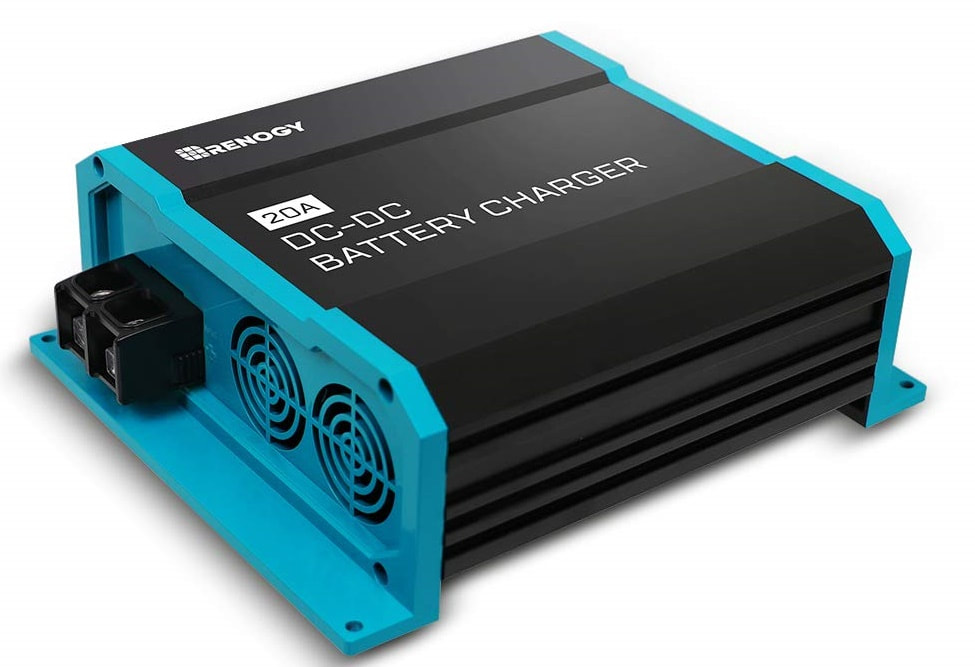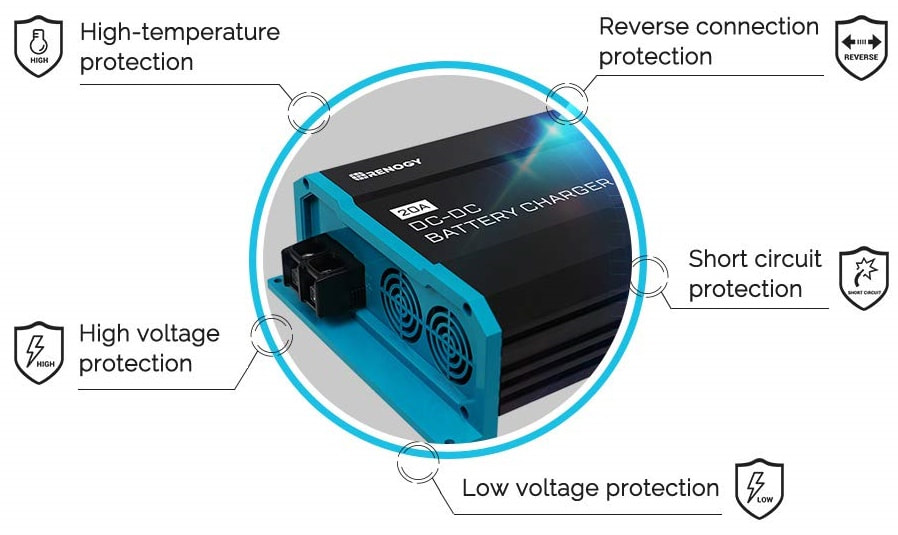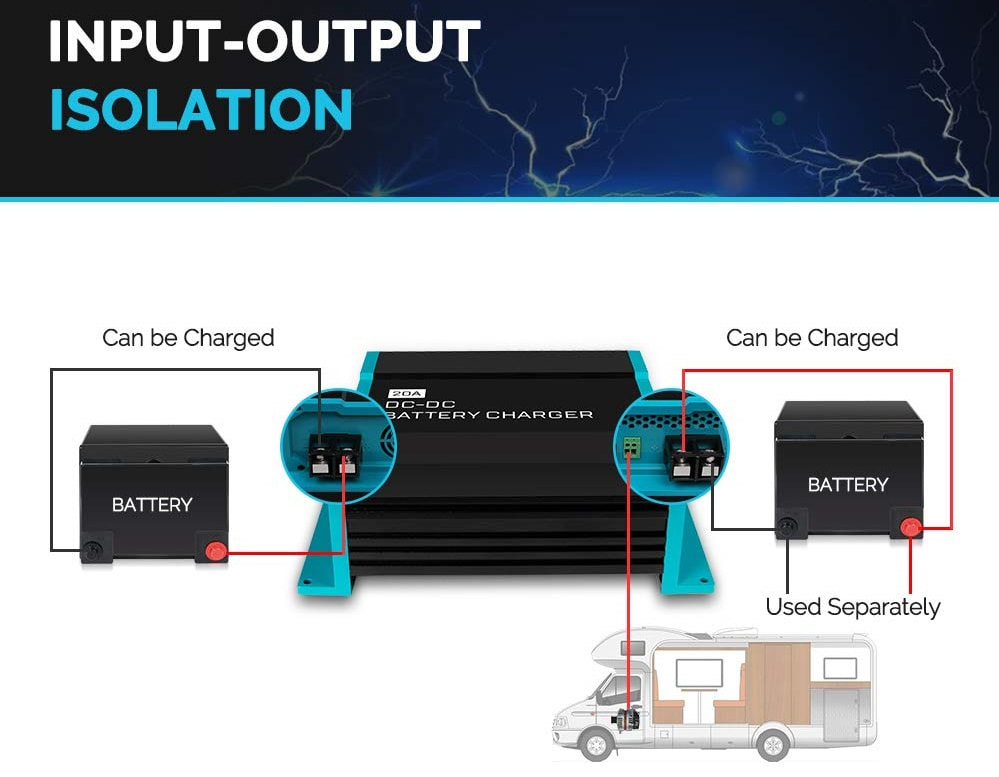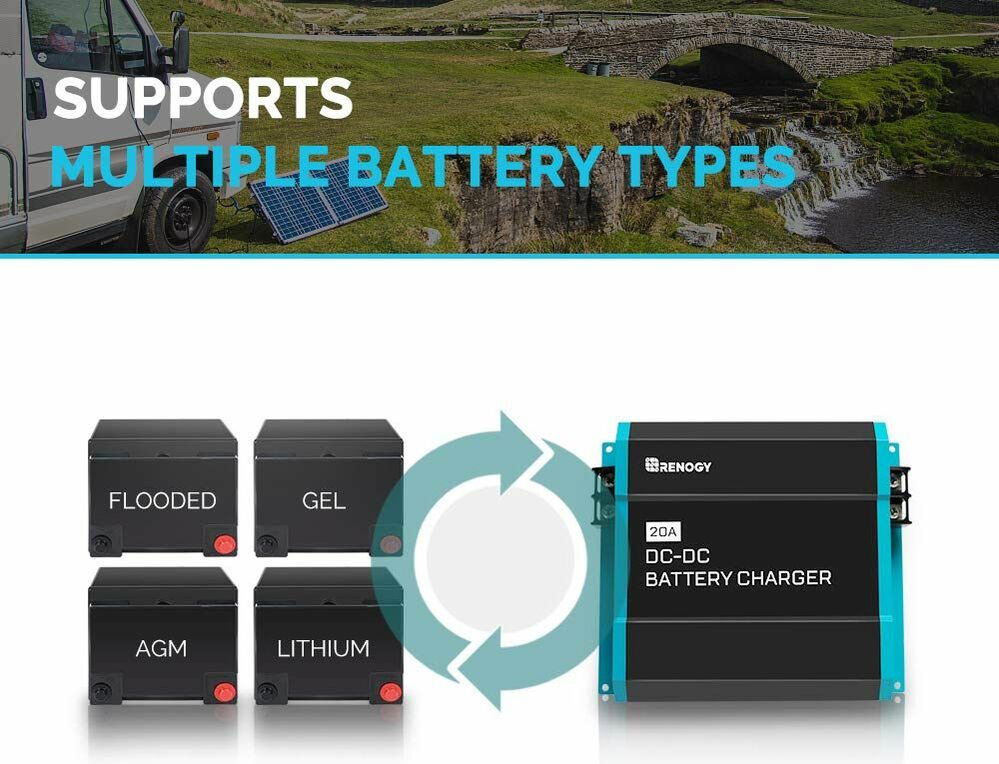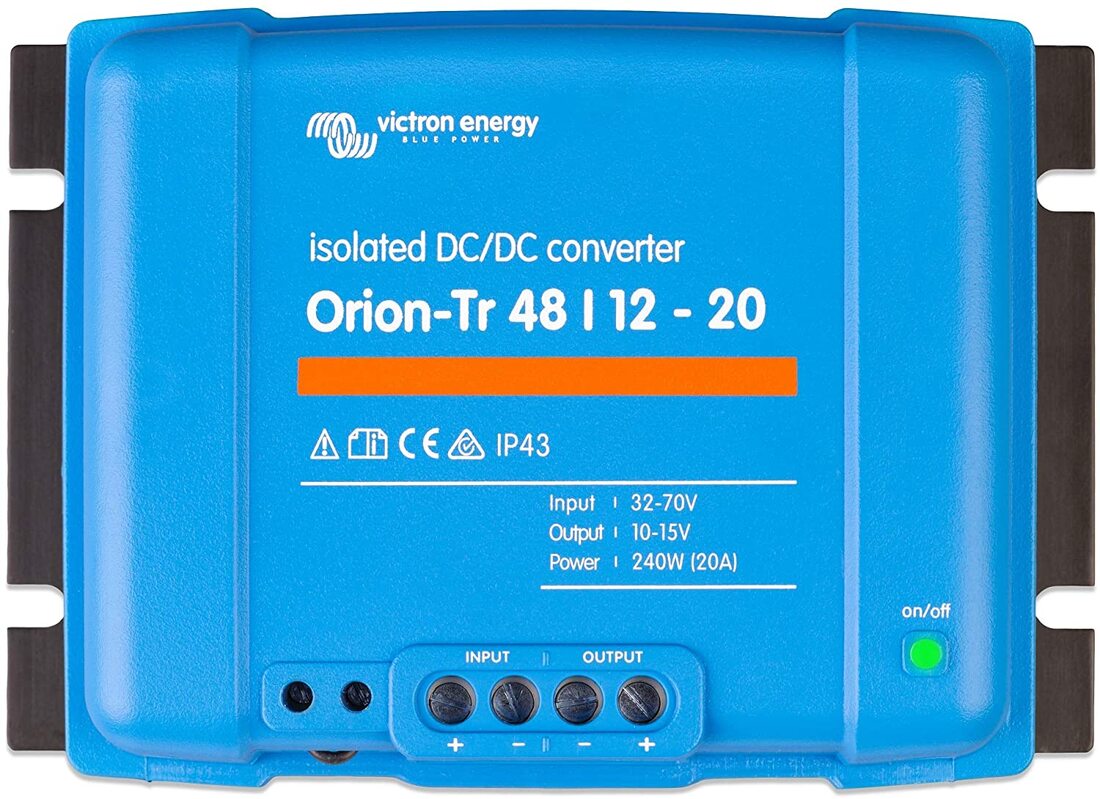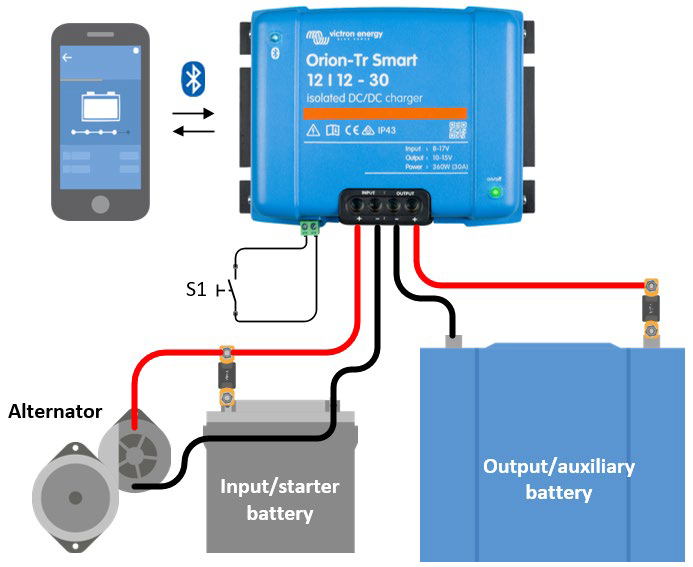Why you should avoid *most* battery isolators:
(I make a commission for purchases made through the links below)
I am not a fan of most battery isolators, because:
With that said, some people who live far from the equator or have significant cloud cover, cannot depend on their solar panels producing the power they need. In these instances, a battery isolator maybe appropriate.
If you use the right equipment such as an alternator that is designed for charging deeply discharged batteries, you may be able to safely pull it off. The most important feature that your battery isolator needs to have is voltage sensitivity. This will allow charging from the vehicle only when the voltage is high enough. Many of these "smart" battery isolators have other features, such as charge profiles to charge the battery all the way, diode protection, delayed operation for engine start and so much more.
Or! You can use a DC to DC battery charger. These will regulate the current delivered by the alternator and will allow for safe charging of your solar batteries.
- Battery isolators have the potential to hurt your vehicles charging system (the charging system of a vehicle is not designed to charge deeply discharged solar batteries). You may overheat and damage your alternator, or the voltage regulator. Some marine grade and large alternators are designed to charge large battery banks, but not the standard ones that come with modern day vehicles.
- You need to drive your vehicle for hours at a time to create any noticeable amount of electricity. Yes the voltage may go up on your battery bank, but the total amount of energy delivered to the batteries is very small unless you drive all day.
- Wiring two different batteries in parallel (such as a flooded lead acid starting battery and a drop in lithium) is always a bad idea.
With that said, some people who live far from the equator or have significant cloud cover, cannot depend on their solar panels producing the power they need. In these instances, a battery isolator maybe appropriate.
If you use the right equipment such as an alternator that is designed for charging deeply discharged batteries, you may be able to safely pull it off. The most important feature that your battery isolator needs to have is voltage sensitivity. This will allow charging from the vehicle only when the voltage is high enough. Many of these "smart" battery isolators have other features, such as charge profiles to charge the battery all the way, diode protection, delayed operation for engine start and so much more.
Or! You can use a DC to DC battery charger. These will regulate the current delivered by the alternator and will allow for safe charging of your solar batteries.
Battery Isolators (DC-DC Chargers) That are 100% safe
to use with lithium batteries:
If you wish to charge your solar battery in a safe manner with a vehicle's alternator, use a DC-DC Battery Charger. This will ensure that the alternator does not overheat and that the charging algorithm is ideal for your battery. They cost a little bit more, but are worth every penny.
Renogy 20a/40a DC-DC Battery Charger
For the price, you can't beat it. Protection features, isolation, multi stage charging and temperature protection
If you have a small van or truck camper, use the 20 amp model
DC-DC Battery Charger: 20 amp model Click Here
If you have a large RV with a big alternator, use the 40 amp model
DC-DC Battery Charger: 40 amp model Click Here
If you have a small van or truck camper, use the 20 amp model
DC-DC Battery Charger: 20 amp model Click Here
If you have a large RV with a big alternator, use the 40 amp model
DC-DC Battery Charger: 40 amp model Click Here
Installing these can be tricky, because you will have to run some wires around your vehicle. There are only a couple wires involved though, so it should be pretty straight forward.
- If you are using the 20 amp model, you can connect it with 10 gauge wire. If your vehicle is large, such as a bus, an 8 gauge wire will be preferred.
- If you are using the 40 amp model, 8 gauge can work, but I would stick with 6 gauge for most situations.
30A Victron Orion TR - Smart DC-DC Charger
|
This is the highest quality dc-dc charger of them all, but also more expensive. But it has many features that the models above do not have. You can program everything you wish, and it is very reliable. This unit should last longer than anything else in your system. You can use this for marine or automotive systems. Highly recommended.
Click Here to Purchase |

